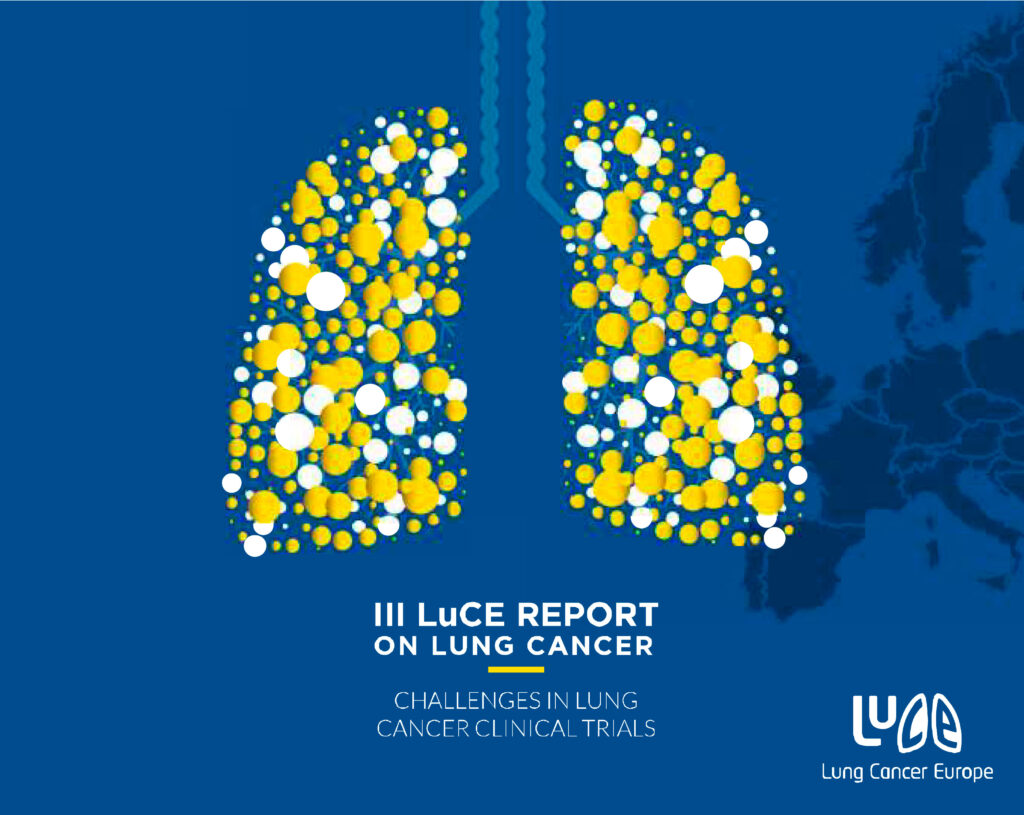
November 7 th 2017: LuCE report on Lung Cancer
After the 1st LuCE Report in 2016, in which we highlighted the main challenges in lung cancer in Europe from the patient perspective, we launch this 2nd Report to deepen our research on one of our main worries: disparities on access across Europe.
Lung Cancer Europe (LuCE) represents lung cancer patients and caregivers, no matter the place they live, and we advocate for the best support as possible for all of them. But, as this report evidences, disparities in diagnosis, treatment and care access exist between different European countries, so we need solutions. We encourage our collaborators in the fields of policy, science, research and civil society to read this report and we call on them to work together.
ABOUT THIS REPORT
The landscape of lung cancer treatment is rapidly evolving. Over the last decade, great progress has been made in expanding the knowledge and understanding of molecular drivers of cancer in order to develop a new era of lung cancer treatments. The introduction of immune therapies to treat lung cancer is also changing the face of the disease, extending both durable remissions
and prolonging survival.
However, we believe significant barriers in accessing these treatments still exist, or are even increasing in some cases, in the form of high regulatory hurdles and access for new medicines and diagnosis at a late stage, with five-year survival rates remaining low in Europe and lack of a specialised multidisciplinary structure to ensure adequate lung cancer patients
care. The purpose of this report is to review the different challenges around lung cancer, with specific focus on the existing barriers and inequalities in access to diagnosis and treatment for patients in Europe.
Our report constitutes the second stage of this project, following the launch of the first LuCE Report in 2016 at the European Parliament, along with our call to action. The 2016 report provided a general overview of lung cancer incidence in Europe and the challenges faced in selected countries. This report builds on the one from last year, with a focus on how to help different stakeholders contribute to better access to early diagnosis, molecular testing, and innovative treatment for lung cancer patients.
